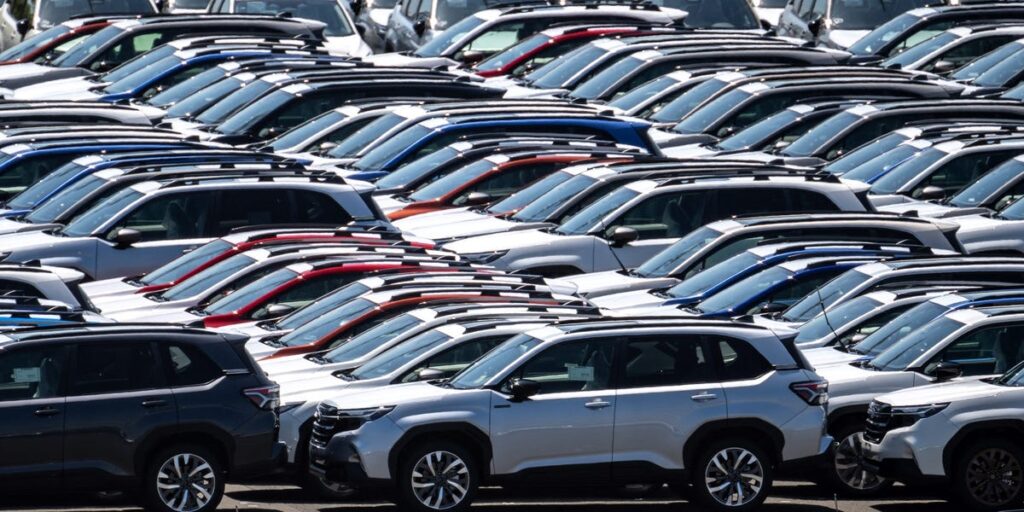The auto industry is still trying to unravel a tangled tariff web, and the bill just keeps getting bigger.
Jeep and Ram owner Stellantis became the latest automaker to forecast a heavy hit from Trump’s tariffs on imported vehicles on Tuesday.
The Chrysler maker said that it expected tariffs to cost it around €1.2 billion ($1.4 billion) in the second half of this year, after a €300 million impact in the first half of 2025.
Stellantis, which builds Chrysler, Dodge, and Jeep models in its factories in Canada and Mexico, has been hit hard by the Trump administration’s 25% tariff on vehicles and car parts imported into the US.
Other automakers are also feeling the pain. General Motors, which builds models for the US market in Korea, Mexico, and Canada, said last week that the tariffs had cut $1.1 billion off its profits in the last quarter.
CEO Mary Barra said that GM was working to reduce its tariff exposure and build up its US manufacturing presence, but the company warned that the worst was still to come. GM estimated that the tariffs could cost it between $4 and $5 billion this year.
Trump’s recent trade deals have slashed the tariffs on importing cars from Japan and Europe to the US from 25% to 15%, but manufacturers still have to deal with a hodgepodge of import restrictions and fees.
The 25% tax on automobile parts means that even carmakers who build their cars in the US face a serious tariff headache.
Tesla, which has factories in California and Texas but still uses some imported components, told investors last week it incurred a tariff-related cost of $300 million in the previous quarter, with CFO Vaibhav Taneja warning that costs are likely to increase in the coming months.
European manufacturer VW also said last week it had suffered a $1.1 billion tariff-related hit in the first half of this year, while Swedish carmaker Volvo took a $1.2 billion impairment charge in part due to the escalating cost of the levies.
Experts and analysts have warned that many of the costs facing automakers will be passed on to US consumers in the form of higher car prices and fewer models.
A study by the Center for Automotive Research published in April found that the 25% tariffs on imported cars and auto parts would hike the cost of vehicles produced in the US by over $4,000 and imported vehicles by nearly $9,000.


